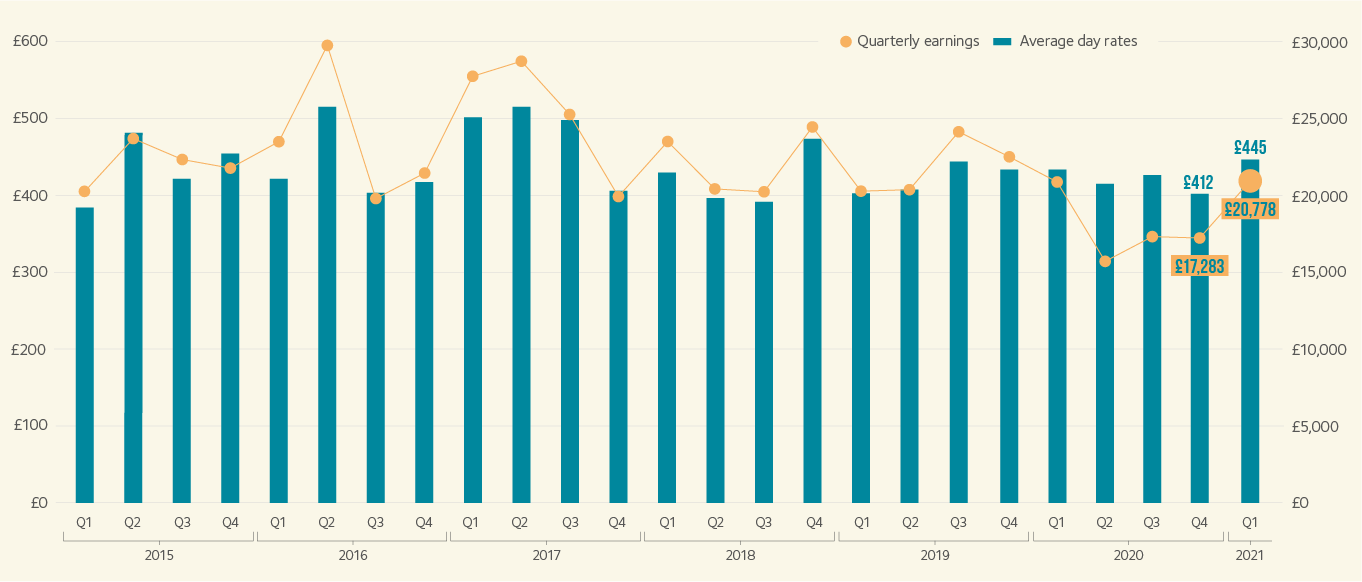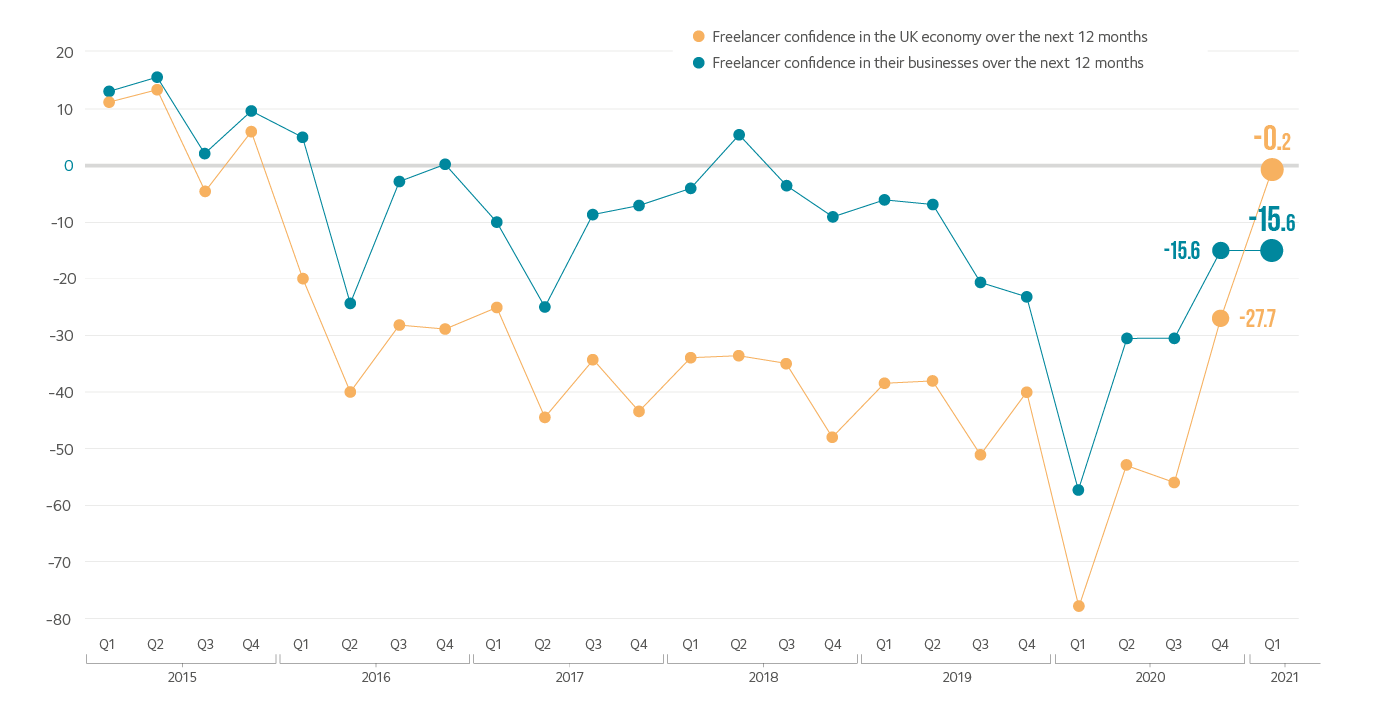- Home
- Knowledge
- Resource library
- Freelancer Confidence Index Q1 2021
Freelancer Confidence Index Q1 2021
- Research
- 6 May 2021
- Joshua Toovey
- Freelancers’ average quarterly earnings have risen 20 per cent from £17,283 at the end of last year to £20,778 – the highest since Q1 2020.
- This was driven by rising day rates (up from £412 to £445) and falling spare capacity (down from 4.3 to 3.7 weeks).
- Freelancers’ three-month and 12-month confidence in the UK economy has risen to the highest level since Q4 2015, before the EU referendum.
- However – most likely because of IR35 – freelancers’ three-month confidence in their businesses has fallen while their 12-month confidence in their businesses has remained at the same level.
- Freelancers state that the two main factors negatively affecting their business are government regulations relating to hiring freelancers and government tax policy – above the pandemic.
This quarter, freelancers’ earnings have risen by 20 per cent from £17,283 in Q4 2020 to £20,778 – the highest since Q1 2020 at the beginning of the UK lockdown. This was driven by them increasing their day rates and also by a reduction in their spare capacity (the number of weeks they go without work each quarter). However, although their spare capacity dropped somewhat – from 4.3 to 3.7 weeks – it has still not returned to pre-pandemic levels of 3.3 weeks or less. This was counteracted by a sharp increase in freelancers’ average day rates from £412 to £445 – the highest level since Q3 2019.
Freelancers’ average day rates and quarterly earnings

Freelancers’ confidence in the UK economy also recovered to pre-pandemic levels. Freelancers’ confidence in the economy over the next three months increased from -27.8 to -4.3, the highest level since Q4 2015 – before the EU referendum. 12-month economic confidence increased from -27.7 to -0.2 – also the highest since Q4 2015.
There has not been a recovery, however, in freelancers’ confidence in their own business performance. Freelancers’ 12-month confidence in their businesses has remained stagnant at -15.6, while their three-month confidence in their businesses has actually decreased – from -11.9 to -13.9. This is the first time since the beginning of IPSE’s Confidence Index in 2014 that freelancers have had less confidence in their own businesses than the economy.
Freelancers’ confidence in their businesses and the UK economy over the next 12 months

The reason for this stark change seems to be the government’s new IR35 tax legislation, which affects freelancer hiring. This is reflected in the fact that rather than the pandemic, freelancers said the two main factors negatively affecting their businesses were government rules relating to the hiring of freelancers (72.9%) and government tax policy (68.5%). The third most significant negative factor was the state of the UK economy (65.6%). By contrast, freelancers said the three main positive factors for their businesses were their brand/reputation (60.8%), innovation in their services (51.9%) and organisations adopting flexible working practices (50.9%).
There was further less positive news in freelancers’ predictions for the year to come. Although there has been a sharp increase in freelancers’ day rates this quarter, 50 per cent expected their rates to decrease over the next 12 months – by an average of 6.2 per cent. A majority of freelancers (67%) also expected their business input costs to increase over the coming year – by an average of 7.4 per cent.
Read the full report here
Meet the author

Joshua Toovey
Senior Research and Policy Officer
